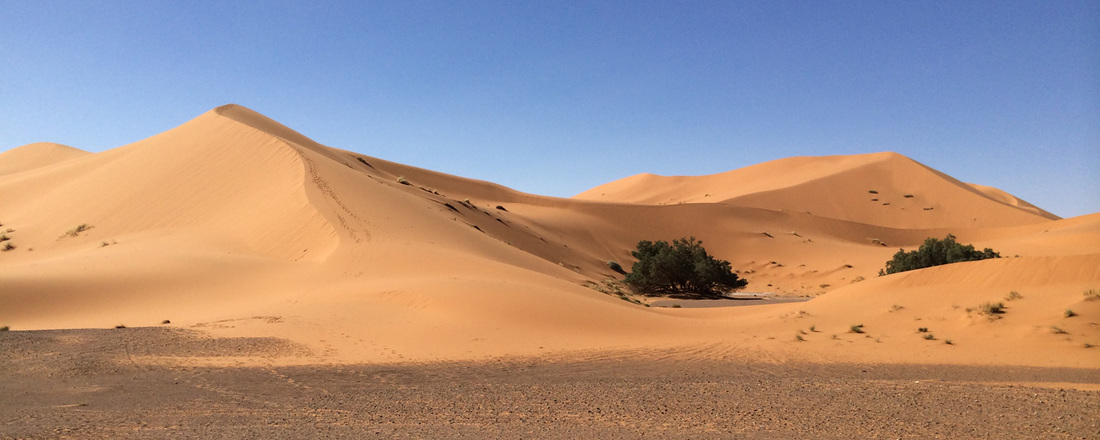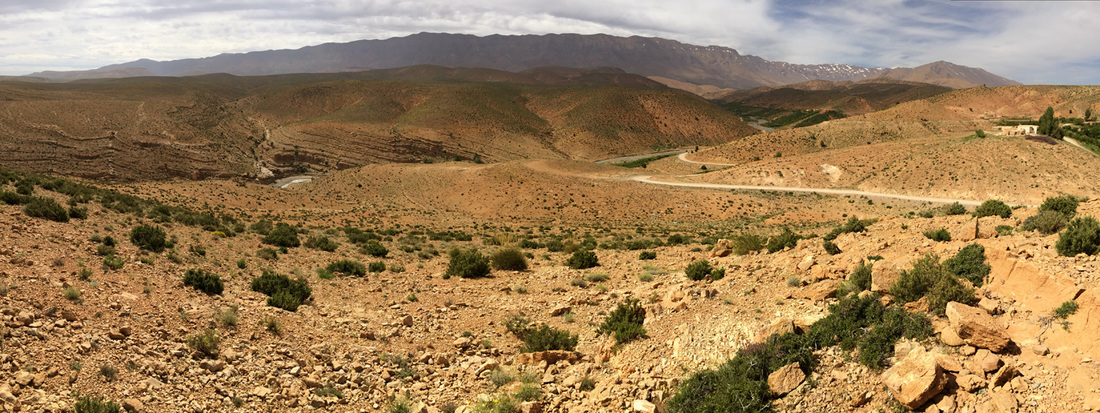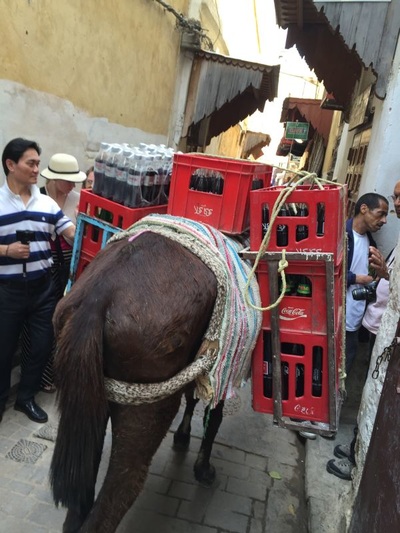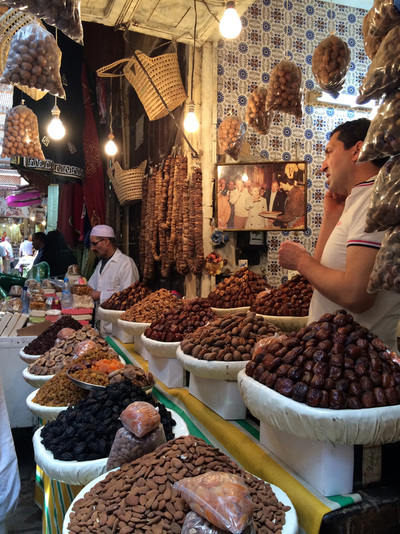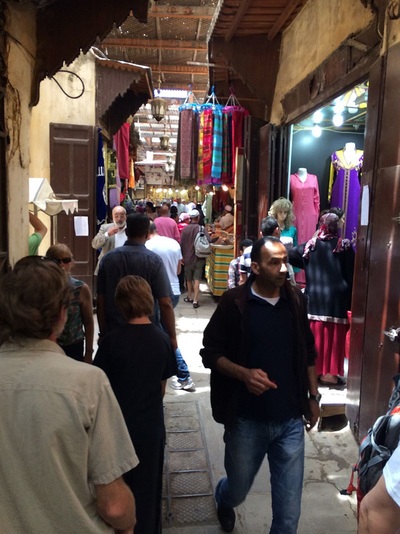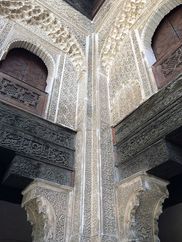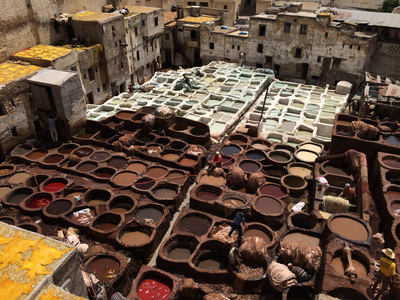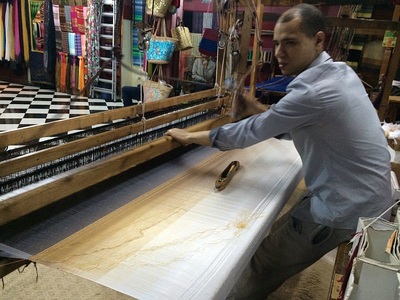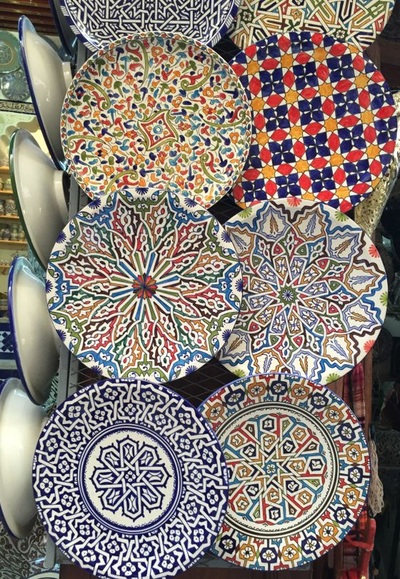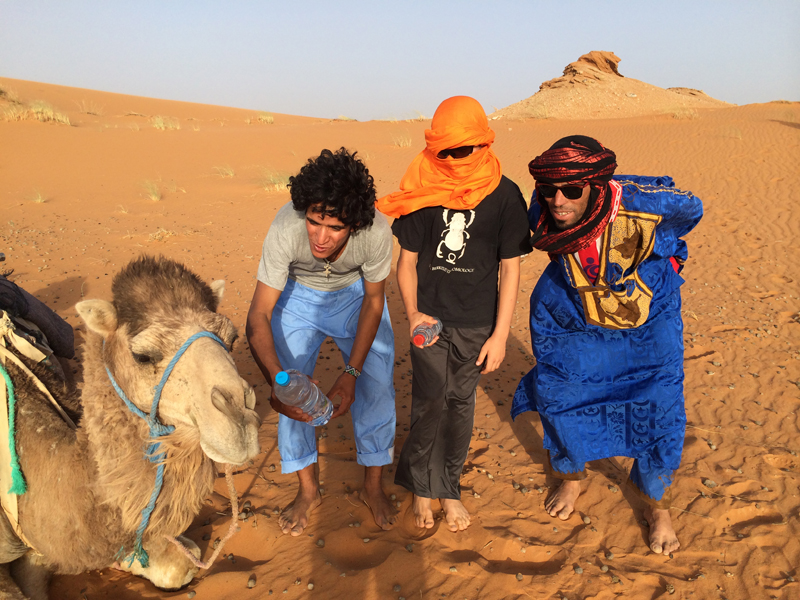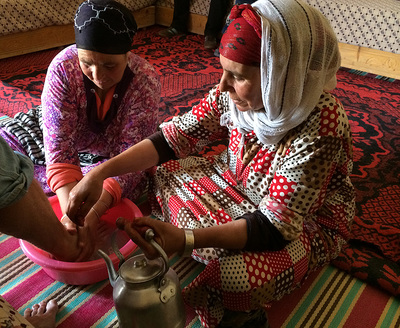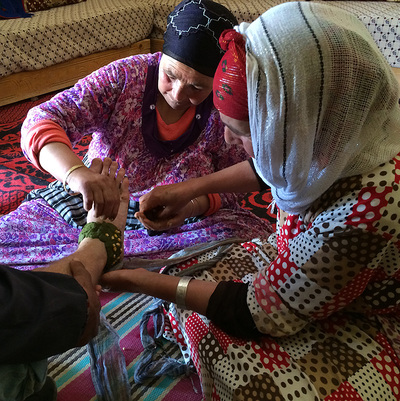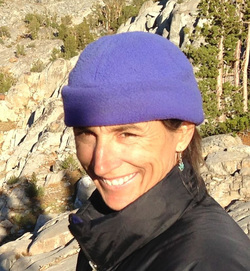Here I am far, far away from home, in the Moroccan desert. It’s a place where the main languages spoken are languages I don’t even know – Moroccan, Berber, and French. It’s an extreme landscape, parched and rocky. The sun is relentless. The wind, penetrating. The people living here are working hard to get by. Customs are different, built on thousands of years of existence in a harsh land. No problem, I’ve been in foreign countries before, I’ve been in extreme conditions before. I can take care of myself. I’m comfortable-ish, relaxed-ish. I have this under control.
Until I don’t.
We were hiking along a bare, rocky ridge. The view of distant mountains and a nearby gorge was stark and spectacular. It was morning, but the sun was already burning. My 11-year-old son was collecting rocks, looking for fossils. My husband, Charlie, was taking pictures of small, desert flowers. I caught up to him and noticed he was grimacing with pain. He mumbled that he’d just turned his ankle. I looked down and saw a huge ball of inflammation growing above his foot. He swayed. Then he fainted. Charlie has never ever fainted.
That’s the moment I realized how independent I’m not.
Ж
Charlie, my son and I had landed in Casablanca, Morocco, and taken the train to Fes. Casablanca is a busy modern city — huge, noisy and lacking personality. But there we learned that city taxis are metered and fair; that nomatter how small a street is, it’s at least three lanes wide; that the “Call to Prayer” is broadcast live on loudspeakers over Moroccan cities even in the middle of the night; and that the Moroccan food – tagines, couscous, pastillas, kabobs – is amazing. On the train, we met our first Moroccans. We shared a train compartment with a family of five on their way to a wedding in Fes. They chattered in Moroccon, laughed a lot, yelled enthusiastically into their cell phones, offered us food, tried out their English with us, laughed some more. “Is this your first visit to Morocco? Welcome to Morocco,” they said. “Where are you from? America?! California?! We have a cousin in California.”
That was our first glimpse into Moroccan Heart… open to all, even strangers. Beautiful and giving.
Northern Morocco sped by the windows, not so different than southern Spain. Rolling limestone hills, covered in sparse vegetation, red poppies, and crops. Maybe the Mediterranean Sea hadn’t really split Spain and Morocco apart, maybe they were really just part of a larger whole.
Ж
Charlie was draped in my lap, leaning against me, unresponsive, his face white and covered in sweat. I talked softly to him, telling him everything he needed to hear, but my mind was starting to spin into worst case scenarios. I tried to control it. There is no moment but this moment. Breathe in. Medical facilities in this country? Hell, I hadn’t even seen an ice cube to reduce swelling. I hadn’t driven a car here. I hadn’t even changed money. Charlie had done it all. There is no moment but this moment. Breathe out. Right now Charlie needed shade and he needed water, and we needed to get him back to the car.
Cue the trumpets, and enter stage-left a tall, broad-shouldered Swiss hiker and his partner with water bottle and a hat. Herman, my patron saint, or Allah, whichever of you chose to look over me in this arid landscape, shukara, tan-mihrt, thank-you.
Ж
Moroccan Heart. Just that much more exposed.
Aziz was our guide in the Fes Medina, the ancient Fes urban center. Professional, he honored our wish to not shop, but to see the cultural heritage of the Medina. We stepped through the blue-tiled Medina gate into a maze of narrow, cobbled streets, bordered with shops, and humming with activity. People, bikes, and laden horses (like the Coca-cola “truck” below) passed in both directions.
Ж
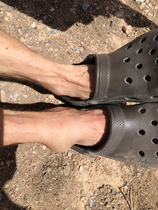
The private doctor indeed had an x-ray machine. But despite the needling and cajoling by our new friends, he wouldn’t see Charlie until he’d seen everyone else in line. That seemed fair to us, glad to know that’s how medicine was practiced in Morocco. The wait was long. The men stayed with us and chatted. Is this your first visit to Morocco? Welcome to Morocco! Where are you from? Ah, California, I have a friend in Los Angeles.
After over an hour, with more and more of Charlie’s personality poking through the stress of the injury, Charlie decided that knowing whether his ankle was broken wasn’t important. It was time to go to the healer. He was ready for an adventure.
Ж
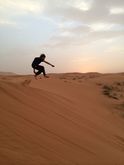
We loved the soft feel of early sun, and the gentle playfulness of the warm morning breeze. We loved the sharp relief of the shadows at the bottom of our footprints.
When the sun rose enough to burn, we wandered back to camp. I picked up trash left by thoughtless tourists. Not too much, a water bottle here, a wrapper there, some wind-blown plastic bags, the ubiquitous Coke can.
We dropped off the dunes into camp, our home for two nights. It’s a Berber-style camp, in that it has woven rug-walled tents and a central fire ring. Unlike a Berber camp, however, it’s luxury in the desert. There are tents to sleep, dine, shower and relax in, there are tables scattered throughout the area.
Enormous Moroccan hearts, these men.
Ж
The healer lived in a brick/mud house, but the inside was cozy, covered in colorful wool carpets. There were cushions to sit on and even benches.
She and her partner, also a healer, looked at Charlie’s ankle, probed a bit (ouch), and told him it wasn’t broken. They boiled water, washed the ankle thoroughly, then made a henna poultice, which they packed around the ankle. Then they added dried corn.
She said, Loosen it after an hour if it’s too tight. Take the dressing off in a few days…
Ж
Berbers are known to be fiercely independent. Immersed in and thriving on the incredibly rich and diverse landscape of Morocco, they make their own choices. The Berbers’ own name for themselves, Amazigh, is derived from the symbol in the middle of the Berber Flag, the yaz Ж, meaning “free man”. On the flag, it’s red, their color for blood/life, and their color for resistance.
But fierce independence for Berbers includes strong dependencies as well. Strong ties to family, enough to call home every day from the nearest sand dune. Strong traditions of hospitality, which means reaching out to, welcoming, and aiding complete strangers like ourselves.
Ж
By the evening of the day Charlie visited the healers, he was already walking among the dunes. Every day afterwards, his ankle improved. By Marrakesh he wasn’t even limping. Perhaps the Moroccan miracles and the healers returned seamlessly to their lives, and perhaps the winds of the desert have already erased our tracks there. But the imprints of these people in our lives will last, indelibly. I learned alot about the importance of heart from our encounters with the people of Morocco, heart as a part of being strong, free and independent.
There is no doubt to me why Moroccans touch their heart with every greeting.
